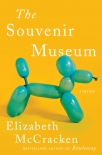An American Tragedy, Theodore Dreiser [best business books of all time txt] 📗

- Author: Theodore Dreiser
Book online «An American Tragedy, Theodore Dreiser [best business books of all time txt] 📗». Author Theodore Dreiser
And here, very different from the Great Northern and superior from a social and material point of view, as Clyde saw it, to even the Green-Davidson, he was able once more to view at close range a type of life that most affected, unfortunately, his bump of position and distinction. For to this club from day to day came or went such a company of seemingly mentally and socially worldly elect as he had never seen anywhere before, the self-integrated and self-centered from not only all of the states of his native land but from all countries and continents. American politicians from the north, south, east, west—the principal politicians and bosses, or alleged statesmen of their particular regions—surgeons, scientists, arrived physicians, generals, literary and social figures, not only from America but from the world over.
Here also, a fact which impressed and even startled his sense of curiosity and awe, even—there was no faintest trace of that sex element which had characterized most of the phases of life to be seen in the Green-Davidson, and more recently the Great Northern. In fact, in so far as he could remember, had seemed to run through and motivate nearly, if not quite all of the phases of life that he had thus far contacted. But here was no sex—no trace of it. No women were admitted to this club. These various distinguished individuals came and went, singly as a rule, and with the noiseless vigor and reserve that characterizes the ultra successful. They often ate alone, conferred in pairs and groups, noiselessly—read their papers or books, or went here and there in swiftly driven automobiles—but for the most part seemed to be unaware of, or at least unaffected by, that element of passion, which, to his immature mind up to this time, had seemed to propel and disarrange so many things in those lesser worlds with which up to now he had been identified.
Probably one could not attain to or retain one’s place in so remarkable a world as this unless one were indifferent to sex, a disgraceful passion, of course. And hence in the presence or under the eyes of such people one had to act and seem as though such thoughts as from time to time swayed one were far from one’s mind.
After he had worked here a little while, under the influence of this organization and various personalities who came here, he had taken on a most gentlemanly and reserved air. When he was within the precincts of the club itself, he felt himself different from what he really was—more subdued, less romantic, more practical, certain that if he tried now, imitated the soberer people of the world, and those only, that some day he might succeed, if not greatly, at least much better than he had thus far. And who knows? What if he worked very steadily and made only the right sort of contacts and conducted himself with the greatest care here, one of these very remarkable men whom he saw entering or departing from here might take a fancy to him and offer him a connection with something important somewhere, such as he had never had before, and that might lift him into a world such as he had never known.
For to say the truth, Clyde had a soul that was not destined to grow up. He lacked decidedly that mental clarity and inner directing application that in so many permits them to sort out from the facts and avenues of life the particular thing or things that make for their direct advancement.
IVHowever, as he now fancied, it was because he lacked an education that he had done so poorly. Because of those various moves from city to city in his early youth, he had never been permitted to collect such a sum of practical training in any field as would permit him, so he thought, to aspire to the great worlds of which these men appeared to be a part. Yet his soul now yearned for this. The people who lived in fine houses, who stopped at great hotels, and had men like Mr. Squires, and the manager of the bellhops here, to wait on them and arrange for their comfort. And he was still a bellhop. And close to twenty-one. At times it made him very sad. He wished and wished that he could get into some work where he could rise and be somebody—not always remain a bellhop, as at times he feared he might.
About the time that he reached this conclusion in regard to himself and was meditating on some way to improve and safeguard his future, his uncle, Samuel Griffiths, arrived in Chicago. And having connections here which made a card to this club an obvious civility, he came directly to it and for several days was about the place conferring with individuals who came to see him, or hurrying to and fro to meet people and visit concerns whom he deemed it important to see.
And it was not an hour after he arrived before Ratterer, who had charge of the pegboard at the door by day and who had but a moment before finished posting the name of this uncle on the board, signaled to Clyde, who came over.
“Didn’t you say you had an uncle or something by the name of Griffiths in the collar business somewhere in New York State?”
“Sure,” replied Clyde. “Samuel Griffiths. He has a big collar factory in Lycurgus. That’s his ad you see in all the papers and that’s his fire sign over there on Michigan





Comments (0)